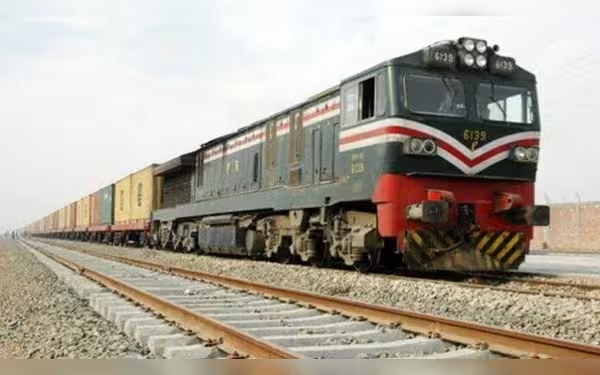Thursday, July 4, 2024 05:34 PM
Pakistan Railways increases freight train fares due to rising fuel costs
- Freight train fares up by 3% following petrol price hike
- Certain goods exempt from fare increase for specific industries
- Global petroleum market trends impact domestic fuel prices and transportation costs
 Image Credits: dailypakistanen
Image Credits: dailypakistanenPakistan Railways raises freight train fares by 3% due to government's decision to increase petrol prices, impacting transportation costs and specific industries.
Pakistan Railways has recently announced a three percent increase in the fare of certain freight trains following a government decision to raise petroleum prices. This decision comes in response to the global upward trend in the market affecting the prices of essential fuels.
The new freight train fares, set to be implemented starting from July 3, 2024, will impact most goods transported by rail. However, specific items such as steel coils, petroleum products, LHC, LMC, hunting charges, and others will be exempt from this fare hike, providing some relief to certain industries.
On Sunday night, the government raised petrol prices, citing the recent surge in international petroleum product prices. The price of petrol has been increased by Rs7.45 per litre, reaching Rs265.61 for the period of July 1 to July 15. Additionally, the price of high-speed diesel (HSD) has also gone up by Rs9.56 to Rs277.45 per litre, with the new prices taking effect from July 1.
This adjustment in prices marks the first change since the announcement of the federal budget for the fiscal year 2024-25 on June 12. The official notification highlights the impact of global market trends on domestic fuel prices, emphasizing the need for periodic adjustments to align with international standards.
The increase in freight train fares by Pakistan Railways reflects the broader economic challenges posed by fluctuating petroleum prices. As consumers and businesses navigate these changes, it is essential to stay informed about developments in the energy sector and their implications on transportation costs and overall economic stability.













